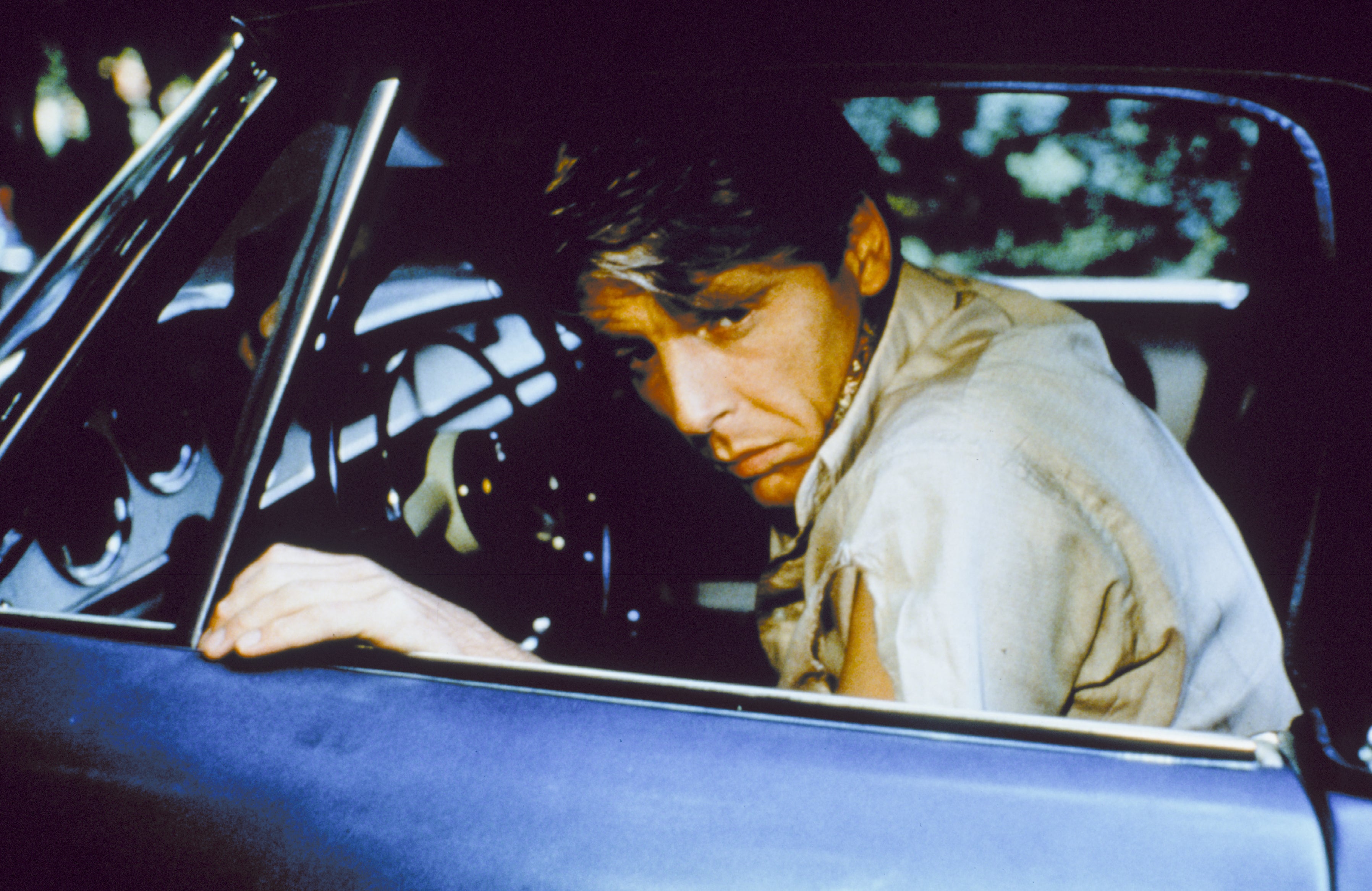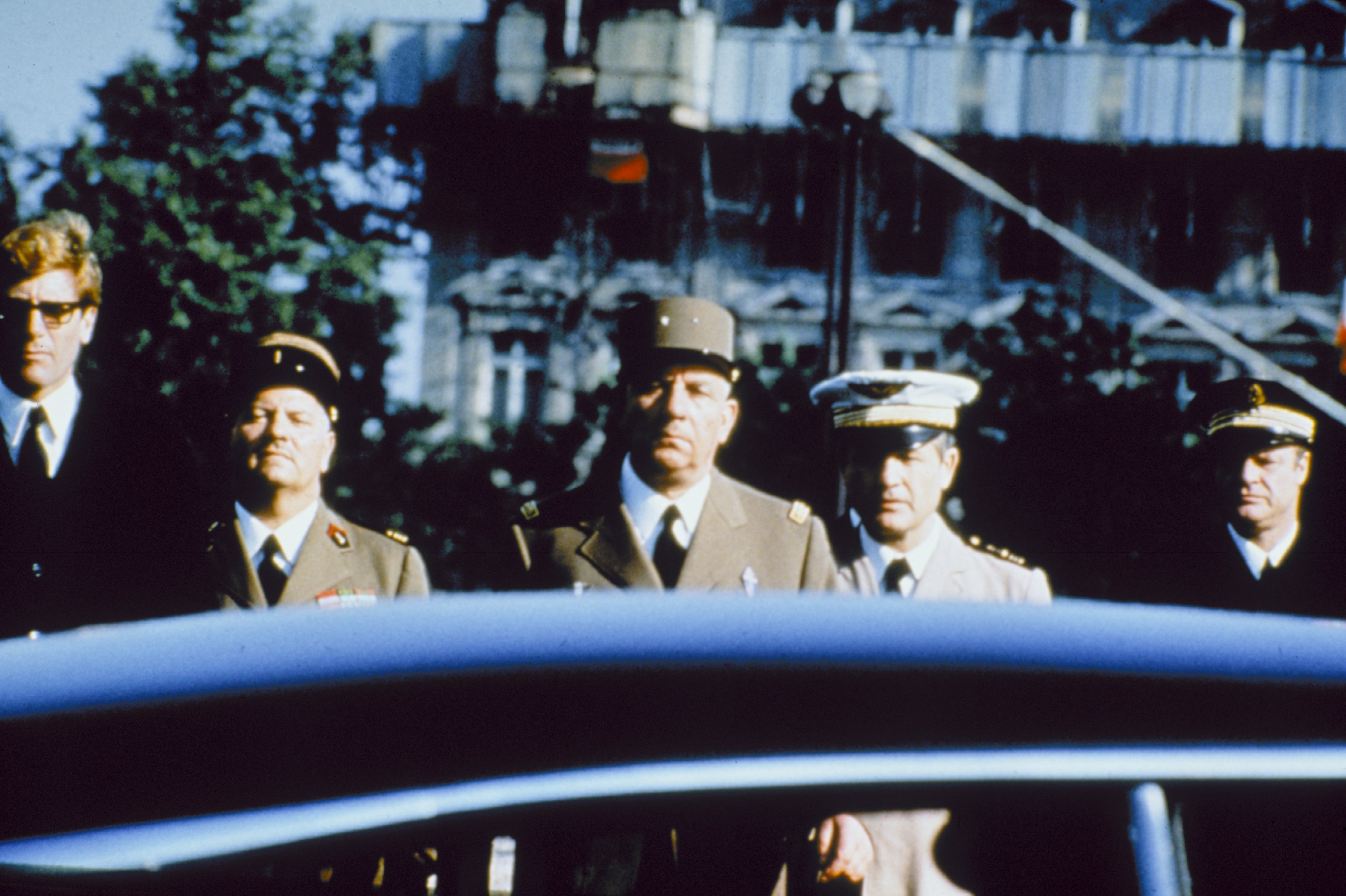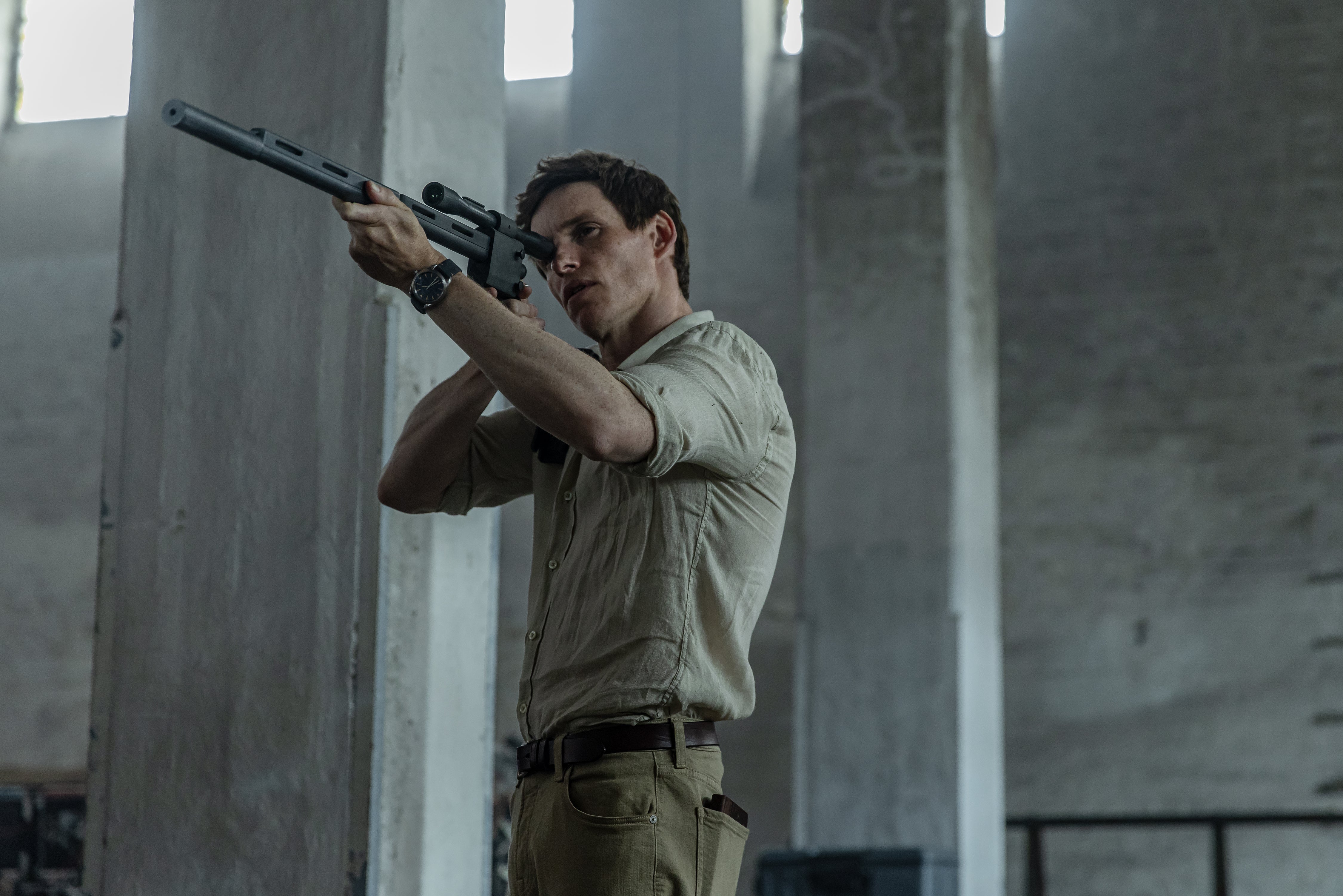Eddie Redmayne as an ace assassin? To some people, the casting for the new TV adaptation of The Day of the Jackal doesn’t make any sense. The whole point of the killer – the titular “Jackal” – is that he can always melt into a crowd. He’s the everyman who doesn’t attract a second glance, the classless, bland-looking, unthreatening Englishman without any obvious machismo. Bank tellers and railway station guards who speak with him one moment will probably already have forgotten what he looked like or said the next. He’s Mr Nobody with a concealed gun.
Fantastic Beasts actor Redmayne is a dubious choice for such a role – an immediately recognisable movie star with striking leading-man looks. Reviews have been effusive in their praise of his performance, but reservations around the casting remain. More than three decades ago, High Noon director Fred Zinnemann chose the opposite tack when adapting Frederick Forsyth’s novel The Day of the Jackal for the first time. His classic 1973 adaptation worked so well precisely because Zinnemann didn’t choose a star for the role, opting instead for the then little-known Edward Fox.
Other major names had been angling hard for the part. “Before [Fox] was cast, my father got a telephone call from America from Jack Nicholson,” Jonathan Woolf, the son of producer John Woolf, tells me. “Nicholson had read the book, knew the film was coming, and was absolutely desperate to play the part – so desperate he said, ‘I am going to get on the plane, pay for the ticket myself, come and see you, and persuade you to cast me.’” The elder Woolf met the Cuckoo’s Nest star in London, telling him: “Thank you very much, but I’m afraid that, great actor that you are, that’s the problem!”
Nicholson wasn’t the only one. ”You’re too well known,” Zinnemann warned Roger Moore (then at the start of his stint as James Bond) after he too came sniffing round the part.
You can see what attracted them. Forsyth’s first full-length novel, published in 1971, had already become a bestseller in both the UK and US. His terse, punchy style was perfect for a movie. “It is cold at six-forty in the morning of a March day in Paris, and seems even colder when a man is about to be executed by firing squad,” begins his book, in memorably evocative fashion. The Jackal himself is one of those movie characters who instantly intrigue audiences: cool, enigmatic, endlessly resourceful but with a saturnine and violent side.
Zinnemann’s movie originated in a haphazard way. Woolf (the British producer behind Room at the Top, The African Queen and Oliver!) had optioned Forsyth’s book even before it had been published. He and Zinnemann had been discussing another project, an adaptation of the play Abelard and Heloise, when the director spotted the manuscript of TheDay of the Jackal on Woolf’s desk.
“I started reading after dinner, finished bleary-eyed the next morning, picked up the phone and asked John, ‘why don’t we make this one?” he later recalled.
The movie was a very curious affair: a British-made thriller, largely set in continental Europe with British and French actors, and with a very big name Hollywood director behind it. (Zinnemann’s other credits included From Here to Eternity and Oklahoma!)
The plot revolves around an assassination attempt on French president Charles De Gaulle. Forsyth had been a journalist with Reuters in Paris in the early 1960s, following De Gaulle when the threats against him were mounting. The author was an ex-MI6 informer who knew the social and political background of the period inside out. After one murder plot after another failed, the young British reporter became convinced that the only way De Gaulle could be killed was by an outsider – someone like his fictional “Jackal”.
In his public pronouncements about his film, Zinnemann was very careful to play down the politics. We are told early on that French far-right paramilitary group the OAS believed De Gaulle had “betrayed the country by giving independence to Algeria” – but that’s basically all viewers are given by way of historical content. “The Day of the Jackal was made purely as entertainment and doesn’t pretend to be anything else,” Zinnemann told the press. “It should not be taken seriously politically or in any other way, because it’s just a technical exercise in suspense.”
However, the director wasn’t being entirely truthful. He had started his career making documentaries. In The Day of the Jackal, he goes to exhaustive lengths to depict the terrorists and security forces accurately. Zinnemann told journalist Paul R Michaud that painstaking attention to detail was crucial to his work. “I love to do background research…you start going, and you can’t stop,” he said. “It’s like an archaeological expedition. You bore a shaft into something, and it branches out in all directions.”
This may be rip-roaring action adventure but it has some very grim moments – torture sequences, executions, and cold-hearted killings of members of the public. The film, like Forsyth’s book, still appeared to suffer from one fundamental flaw. Everyone watching it in 1973 already knew that De Gaulle hadn’t been killed. He resigned the presidency in 1969, still very much alive. From the moment that the “Jackal” (Fox) takes on his deadly commission from the OAS, it’s therefore obvious that he will fail.

Why, then, does the film still make such nerve-wracking viewing? That’s all to do with Zinnemann’s meticulous craftsmanship. The Day of the Jackal has the same relentless narrative drive as Michael Mann’s best thrillers. As in Mann’s Heat, the killer and the detective (Michel Lonsdale) pursuing him provide a twisted reflection of each other. Both are resourceful but self-effacing men with a similar streak of ruthlessness.
Twenty years earlier, the director had enjoyed one of the biggest hits of his career with the western High Noon (1952), starring Gary Cooper as Marshal Will Kane, a lawman who knows precisely when the outlaws are coming to town to kill him. Zinnemann stokes up the tension in exactly the same way in TheDay of the Jackal. The police have advance knowledge the Jackal will be in Paris for Liberation Day. That’s when he will be taking his pot shot at the president. Throughout the movie, there are constant shots of clocks, ticking down as the police across Europe desperately search for their quarry.
The film also plays strange games with the audience’s sympathies. We can’t help but identify with the “Jackal” as he evades his pursuers. He’s a perfectionist who goes to extraordinary lengths to prepare his “hit”. He’ll disguise himself as a disabled veteran, switch number plates on his car, and find ingenious ways to conceal his weapon.

Zinnemann cast Fox after seeing him in Jospeh Losey’s 1971 period drama The Go-Between, where the low-key English actor had uttered the “impossible” line, “nothing is ever a lady’s fault,” with “such conviction that he made me believe it” (as the director later wrote in his autobiography).
Fox’s “Jackal” is a cipher. He lives under borrowed identities and continually changes his appearance. We know as little about his backstory at the end of the movie as at the beginning. Even his nickname isn’t his own. It is given to him by his French handlers. As played by Fox, he is charming, politely spoken, quietly debonair in his shirt and cravat, but also borderline psychotic. In one especially disturbing scene, he murders the beautiful French aristocrat (Delphine Seyrig) he has just seduced.
“You’ve got to make a totally immoral man, totally greedy, ruthless, a brutal man, [but] you’ve got to make him likeable, otherwise audiences won’t want to go and watch the film,” Fox later said, dissecting the ambiguities of the role.
Jonathan Woolf has no doubts about why the first screen adaptation of The Day of the Jackal worked so well. “It’s Frederick Forsyth’s story, which was brilliant, and Fred Zinnemann’s direction. The two together make a classic film,” he says, as if it’s all as simple as that.
The original movie was also defined by its sense of time and place. It captured the turbulent world of 1960s France in forensic detail and was scrupulously accurate about everything from the inner workings of the French and British police forces to the procedure for security checks at the Italian border.

The remakes, though, have felt far less firmly anchored. The Jackal (1997), starring Bruce Willis and Richard Gere, featured an IRA terrorist on the track of the “world’s most reclusive assassin”. That’s a very long way removed from the milieu of the Forsyth novel. The new Eddie Redmayne TV series plays up the idea Fox first honed of the killer as an existential loner. It is billed as a cat-and-mouse drama about “an exceptional assassin who never looks the same way twice”, hunted down by an equally exceptional British intelligence officer (Lashana Lynch). As in the original, lines between predator and prey are deliberately blurred, but the story has been modernised and the crucial OAS/De Gaulle angle is missing.
Forsyth’s novel became a bestseller because he was writing from the inside about a world he knew intimately. “He lived that life,” Woolf insists. “He met all those people. He saw those situations and he had that experience…that’s why our film was so amazing. And that’s why no one remembers The Jackal [the Willis-starring remake].” Simply recycling a story about a generic hitman going round Europe killing people isn’t enough. “They’re just cashing in on the name of The Day of The Jackal and just cashing in on the name of Frederick Forsyth,” Woolf observes, describing the wave of what he calls “pseudo-remakes”.
Woolf, as it happens, is currently planning a TV version of another of his father’s Forsyth adaptations, The Odessa File, about a journalist investigating a Nazi escape organisation. “We are not updating with it; we are not fiddling with it,” he says.
As for The Day of the Jackal itself, there is one key respect in which the original movie is showing its age. Zinnemann later lamented that the film was made at a time when “we felt safe in the belief that governments could cope with terrorism”. These days, it’s a very different story. As he puts it: “One can’t help but marvel at the speed of collapse of our innocence.”
Fred Zinnemann’s ‘The Day of the Jackal’ is available on ITVX and Amazon. The series ‘The Day of the Jackal’ is streaming on Sky Atlantic

